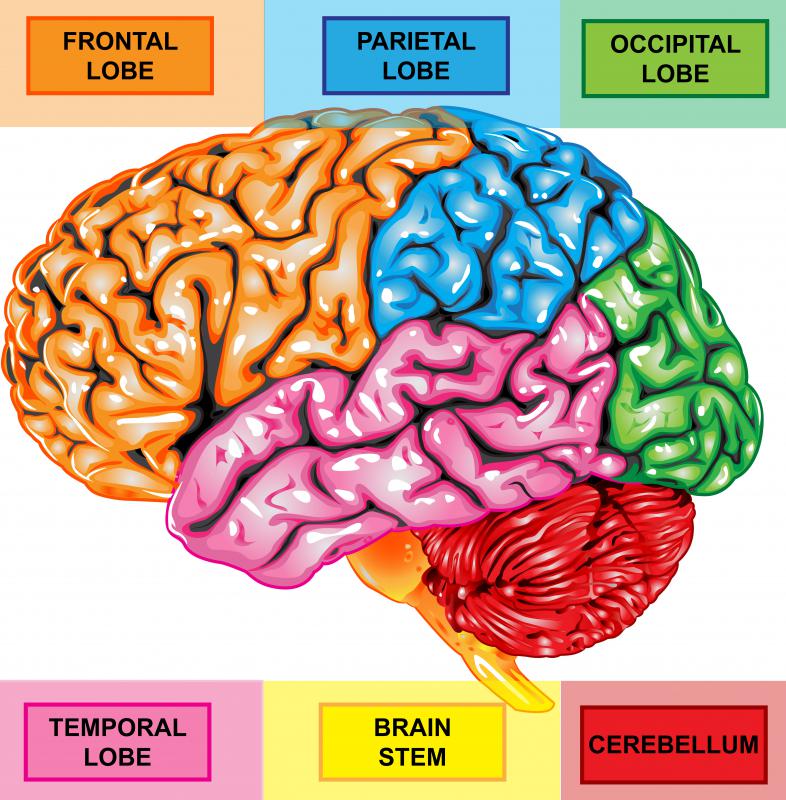At WiseGEEK, we're committed to delivering accurate, trustworthy information. Our expert-authored content is rigorously fact-checked and sourced from credible authorities. Discover how we uphold the highest standards in providing you with reliable knowledge.
What Is the Lateral Frontal Cortex?
The lateral frontal cortex of the mammalian brain is its largest, most prominent structure. Consisting of left and right sides, and located just behind the forehead, it is the area of the brain responsible for problem solving and other advanced mental abilities of human beings. This area is also frequently referred to as the frontal lobes. The lobes as a whole, however, are medically divided and studied in four distinct sections: the lateral, polar, ventral and medial.
The entire cerebral cortex, but the frontal lobe in particular, contains brain cells that are most receptive to the neural chemical dopamine. The chemical is implicated in such basic human behaviors as motivation, attention and reward-satisfaction. One of its apparent functions is to mediate incoming sensory information, to filter only that which is relevant to the mind’s immediate task at hand. Mental disorders such as schizophrenia and drug addiction are thought to be, in large part, disorders of dopamine activity in the lateral frontal cortex.

Although scientists readily acknowledge it as a slight overstatement, many nevertheless cite the enlarged lateral frontal cortex as the defining difference that separates humans from other animals. At its most basic, it has a key role in maintaining attention, or awareness, sometimes defined as consciousness. Tasks which require short term memory are performed by this area of the brain. Not only are humans characterized by a high level of problem-solving, this region of the brain is also responsible for planning, the ability to project the self into a hypothetical future.

The frontal lobe continues to develop in humans, reaching its final mature form after age 20. This coincides with cognitive maturity and the integration of higher mental functions. The dopamine-induced reward to completed tasks is refined by social experience into bad, good, and better. This represents the development of a cultural morality, and the lateral frontal cortex is thought to be involved in the evaluation and decision-making of social interaction. It is also thought to be responsible for long term memory of emotional consequence to events and actions.

Neurologists who study the brain and cognitive psychologists who infer its function from behavior are not entirely in agreement concerning the systematic process of the frontal lobes’ highly complex functioning. The many theories suggested roughly fall into two conceptual categories. Homogeneity suggests that it is governed by a single system, calling upon the brain’s many capabilities as needed. Heterogeneity suggests that it operates as multiple, independent processes whose integrative effect is simply a temporal consequence of simultaneous activity.
AS FEATURED ON:
AS FEATURED ON:













Discuss this Article
Post your comments